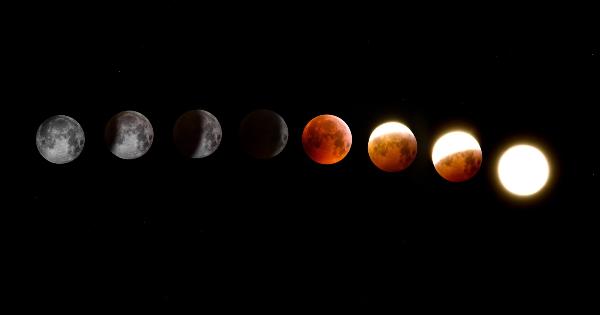People have long suspected that the full moon has an effect on human behavior, including crime.
Does the full moon really cause people to act differently? In this article, we will examine the evidence and theories surrounding the link between the full moon and crime.
The Lunar Effect
Belief in the lunar effect, or the idea that the full moon causes changes in human behavior, has been around for centuries. In fact, the word “lunacy” comes from the Latin word for moon, lunae.
The ancient Greeks and Romans believed that the full moon caused madness and even transformation into wolves and other animals.
Despite the longstanding belief in the lunar effect, there is little scientific evidence to support it.
Numerous studies have been conducted over the years, and the overwhelming consensus is that there is no significant correlation between the full moon and crime.
The Studies
One of the most comprehensive studies on the subject was conducted in 1998 by a team of researchers at the University of Saskatchewan.
They analyzed crime data from the city of Saskatoon for a period of three years and found no significant correlation between the full moon and crime. In fact, crime rates were slightly lower during the full moon.
Another study conducted in 2000 by researchers at the University of New Orleans analyzed crime data from the city of New Orleans for a period of five years. Again, they found no significant correlation between the full moon and crime.
These are just two examples of many studies that have debunked the myth of the lunar effect. While some studies have shown a slight increase in crime during the full moon, these increases are not statistically significant and are likely due to chance.
Theories about the Lunar Effect
Despite the lack of scientific evidence, some people still believe in the lunar effect. There are several theories about why the full moon might influence human behavior, including:.
- Biological rhythms: Some scientists believe that the moon’s gravitational pull might affect our biological rhythms, leading to changes in behavior.
- Perception and expectation: Our perception of the full moon might influence our behavior, as we expect people to behave differently during this time.
- Cultural factors: Belief in the lunar effect might be influenced by cultural factors, such as folklore or astrology.
While these theories are interesting, there is little evidence to support them. The overwhelming consensus among scientists is that the full moon has no significant effect on human behavior.
Conclusion
While it is tempting to believe that the full moon causes people to act differently, there is little scientific evidence to support this idea.
Numerous studies have shown no significant correlation between the full moon and crime, and theories about the lunar effect are largely unsupported.
The belief in the lunar effect is likely due to cultural factors and our perception of the full moon, rather than any actual changes in behavior.
When it comes to crime, it is important to focus on evidence-based strategies and data-driven solutions, rather than relying on myths and superstitions.


























